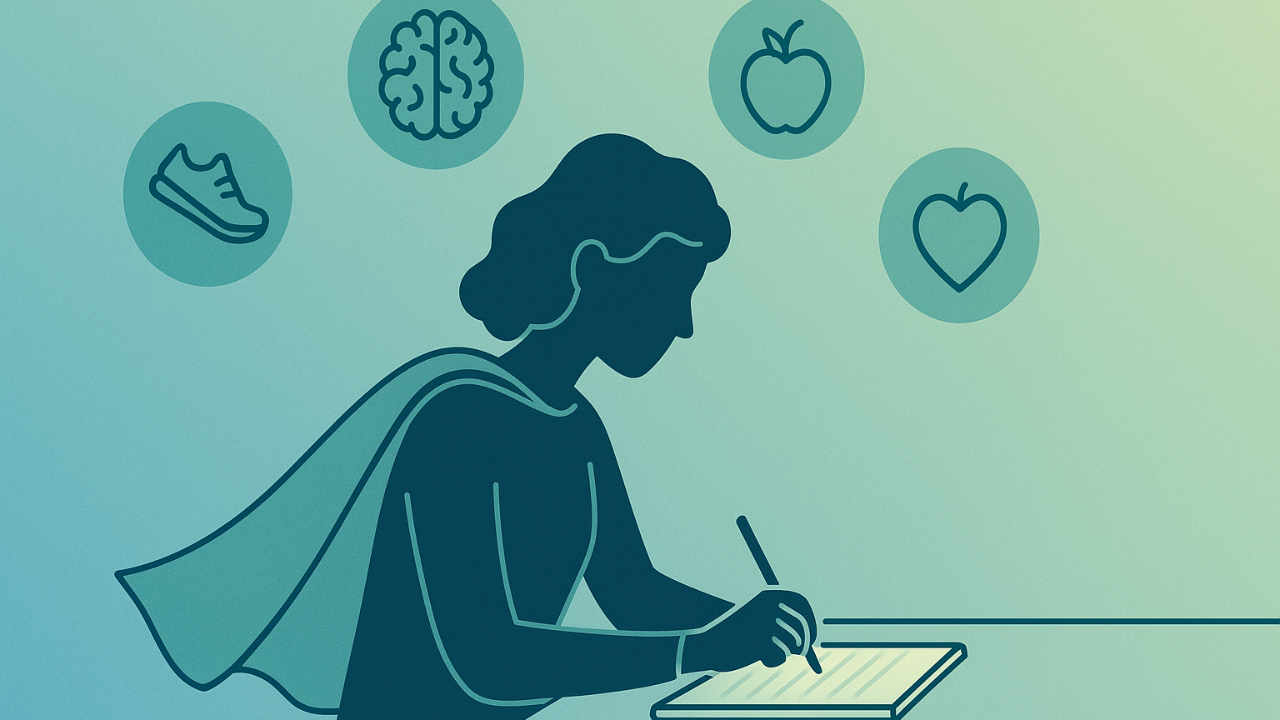How Your Beliefs Shape Your Health and Weight Loss Success
Apr 22, 2025
Have you ever found yourself thinking, "I'm just not someone who exercises" or "I'll always struggle with my weight"? These thoughts might seem harmless, but they could be quietly shaping your habits, decisions, and ultimately, your results. In this blog, we're diving into the powerful connection between your beliefs and your long-term health outcomes. We'll explore the science, personal reflection exercises, and how to begin rewriting your inner narrative.
The Hidden Power of Beliefs
Beliefs are more than just thoughts. They act like internal scripts that influence our behaviours, motivations, and identity. For example, if you've grown up hearing that everyone in your family is a "big eater," you may unknowingly adopt that as part of your identity. The same goes for exercise, cooking, or even your confidence in succeeding at weight loss.
This inner dialogue—"I'm bad at cooking," "I'll never be fit," or "I'm not a disciplined person"—becomes a self-fulfilling prophecy. But the great news? These beliefs can be reprogrammed.
Identity First, Then Habits
Most people start their health journey with a goal: "I want to lose 10 kilos." Then they try to adopt the behaviours they think will get them there—like going to the gym or cutting out snacks. But without the identity to back it up, motivation fades.
Try flipping the script:
-
Identity: "I am someone who takes care of my health."
-
Behaviours: "I move my body regularly and make nourishing food choices."
-
Outcome: "As a result, I am healthier, more energised, and have achieved my weight goals."
Reflect: Who Are You Now?
Grab a pen and paper and reflect on these prompts:
-
What are five traits that describe who you are today? (Think beyond just physical traits—include emotional, behavioural, and lifestyle descriptors.)
-
What are your current beliefs around your health, weight, and ability to change?
-
Where do those beliefs come from? Are they rooted in family culture, past experiences, or something someone told you?
Limiting Beliefs: Time to Challenge Them
Beliefs like "I'm not good at exercise" or "Healthy food is too expensive" might be holding you back more than you realise. Often, these are absorbed from our environment or repeated so often internally that we accept them as facts. But science shows that what we believe can impact us physically.
In one study, researchers told participants they were being exposed to an irritant when they weren’t—and yet, they still broke out in rashes. In another, people who thought they drank caffeinated coffee performed better on alertness tests—even when the coffee was decaf.
The mind-body connection is real. And powerful.
You can also watch this short video to see more examples of how beliefs impact us physically.
The Batman Effect: A Powerful Reminder
In a fascinating study involving children and unsolvable tasks, researchers asked three groups of kids to complete a frustrating challenge. One group simply did the task. The second group was asked to imagine what their favourite superhero would do. The third group dressed up as their favourite superhero—like Batman—and were told to act as if they were that character.
The results? The kids who dressed up and embodied their superhero persisted the longest. They pushed through the challenge with the mindset of someone who doesn't give up. This is known as the “Batman Effect.” It highlights how powerful identity can be—even imagined identity.
So what happens when you put on your cape? Who do you become?
Create Your Super You
Let’s draw a line in the sand. From today forward, who do you want to be?
Imagine your healthiest, most vibrant self. What traits do they embody?
-
Do they love going for a morning walk?
-
Do they cook healthy meals and enjoy it?
-
Do they treat themselves with kindness and compassion?
Now write them down. This is your “Super You.”
Wrap Up: What to Do Next
Here are your next steps:
-
Write down your current health-related beliefs.
-
Reflect on where they came from—and whether they still serve you.
-
Design your Super You. List the traits, behaviours, and attitudes you want to embody.
-
Start acting in alignment with that version of yourself.
Weight loss isn’t just about willpower. It’s about who you believe yourself to be. When your identity supports your goals, the day-to-day decisions become easier—and long-term change becomes possible.
Ready to reshape your future? It starts with a single thought: "What would the healthiest version of me do today?"
If you'd like to work with us to help transform your health, click here to book a consult today.
Check out our page packed with free recipe eBooks and resources to help you with a variety of conditions.
Stay connected with news and updates!
Join our mailing list to receive the latest news and updates from our team.
Don't worry, your information will not be shared.
We hate SPAM. We will never sell your information, for any reason.

